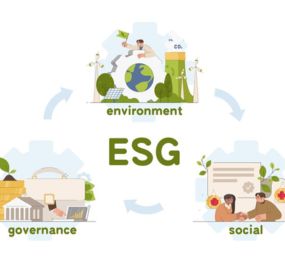ESG (Environmental, Social, and Governance) performance benchmarking has become a critical tool for companies looking to improve their sustainability efforts and remain competitive. As stakeholders increasingly prioritize ESG factors, businesses are under pressure to meet industry standards and demonstrate their commitment to responsible business practices.
Benchmarking ESG performance involves comparing a company’s sustainability metrics against industry peers, global standards, and regulatory requirements. This process provides businesses with valuable insights into their environmental impact, social responsibility, and governance practices, helping them identify areas for improvement and develop strategies to enhance their ESG performance.
One of the key benefits of ESG performance benchmarking is the ability to align with industry-specific standards. Different sectors have unique ESG risks and opportunities, and benchmarking helps companies tailor their sustainability strategies accordingly. For example, energy-intensive industries may focus on reducing carbon emissions and improving energy efficiency, while the financial sector might prioritize governance transparency and responsible investment practices.
Comparing ESG performance across industries also highlights leaders and laggards in the sustainability space. This comparison encourages companies to adopt best practices and improve their ESG metrics, driving innovation and fostering a culture of continuous improvement. By meeting or exceeding industry standards, companies enhance their reputations, attract investors, and strengthen stakeholder trust.
In addition, ESG benchmarking helps businesses comply with evolving regulations and frameworks, such as the Global Reporting Initiative (GRI), the Sustainability Accounting Standards Board (SASB), and the Task Force on Climate-related Financial Disclosures (TCFD). These frameworks provide clear guidelines on how companies should report their ESG efforts, ensuring transparency and accountability.
Ultimately, ESG performance benchmarking is about more than just meeting compliance requirements—it’s a tool for driving meaningful change. By comparing their ESG practices against industry standards, businesses can improve their sustainability efforts, contribute to a better future, and gain a competitive edge in the marketplace.
For more information and registration details, visit the official website: https://www.leadventgrp.com/events/2nd-annual-world-esg-and-climate-summit/details
For more information and group participation, contact us: [email protected]
















